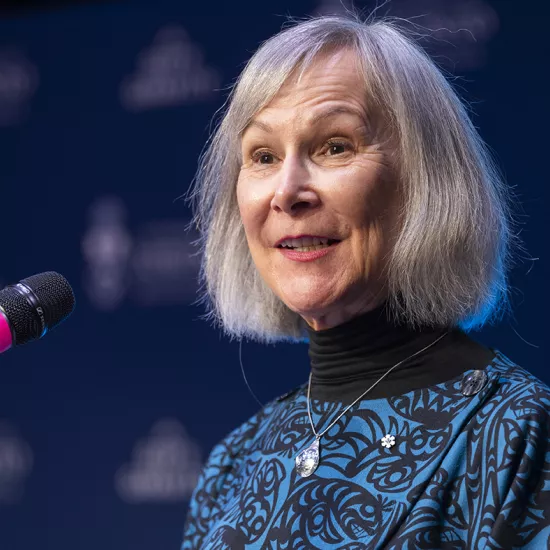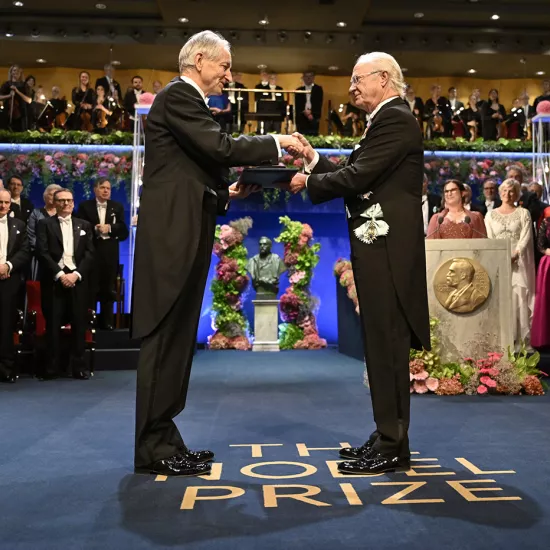Forward-thinking UTM cancer researcher named to Top 40 Under 40

A medicinal chemistry researcher at the University of Toronto Mississauga, whose novel methods may significantly improve how we treat the deadliest types of cancer, has made this year’s list of Canada’s Top 40 Under 40.
Professor Patrick Gunning leads UTM’s Centre for Medicinal Chemistry, which works on developing new drugs to battle aggressive blood, brain and breast cancers. His approach involves developing molecular compounds that more effectively target cancer-associated proteins and cause fewer side effects. Gunning was among 40 innovators in Canada’s private, public and not-for-profit sectors who were acknowledged by the award program, which is run by the Toronto-based global executive search firm Caldwell Partners.
“It’s an honour to be named to a list of such distinguished people,” says Gunning, the Canada Research Chair in Medicinal Chemistry. “It’s important to me to do science that can help patients and make a positive contribution to health care.”
It’s a goal that became a priority for the Scotland native in the mid-2000s, while he was investigating cancer-killing compounds during his post-doctoral studies at Yale University. He joined UTM as an assistant professor in 2007, and his work on targeted cancer medicine has attracted funding from sources such as the Canada Foundation for Innovation, the Natural Sciences Engineering Research Council of Canada and the Canadian Institutes for Health Research. Last September, a $7 million donation from Mississauga real estate firm Orlando Corporation allowed UTM to establish the Centre for Medicinal Chemistry, which has enabled Gunning to significantly expand the scope of his research.
More recently, Gunning has received $300,000 from Max's Big Ride/Jesse's Journey, $200,000 from the Leukemia & Lymphoma Society of Canada and $1.7 million from CIHR.
Gunning and his 35-member team, which includes research associates and students, work in a state-of-the-art 3,600-sq.-ft. facility equipped with 22 stations for conducting chemical synthesis. They test medicinal compounds that can disrupt protein-protein interactions – hubs of protein activity in the body that contribute to cells becoming cancerous. Gunning says many researchers shy away from this area of cancer research because of its considerable complexity. But he says it’s worth the extra effort, because it could yield more effective and less toxic treatments.
“Most acute myeloid leukemia patients can’t tolerate the level of toxicity that comes with high doses of radiation, chemotherapy and bone marrow transplants, so they may have to stop treatment, and because of that, the cancer progresses,” Gunning says. “If we can be more targeted in how we go after cancer, we can provide patients with better treatment and cause them less harm.”
Currently, Gunning and his team do multidisciplinary research, involving disciplines such as organic synthesis, biophysics, computational chemistry, medicinal chemistry and molecular biology. This comprehensive approach allows for a more efficient drug discovery and development process. They also collaborate with cancer researchers at other universities and at hospitals across Canada and worldwide. Their work may benefit those affected by the most rare and lethal types of cancer, such as acute myeloid leukemia, glioblastoma and multiple myeloma.
“We all know people who have been touched by cancer, and in my family people have died of the disease, so it’s a huge issue,” Gunning says. “I know it’s a long, hard road, but I’m optimistic that our work is going to be transformational.”



